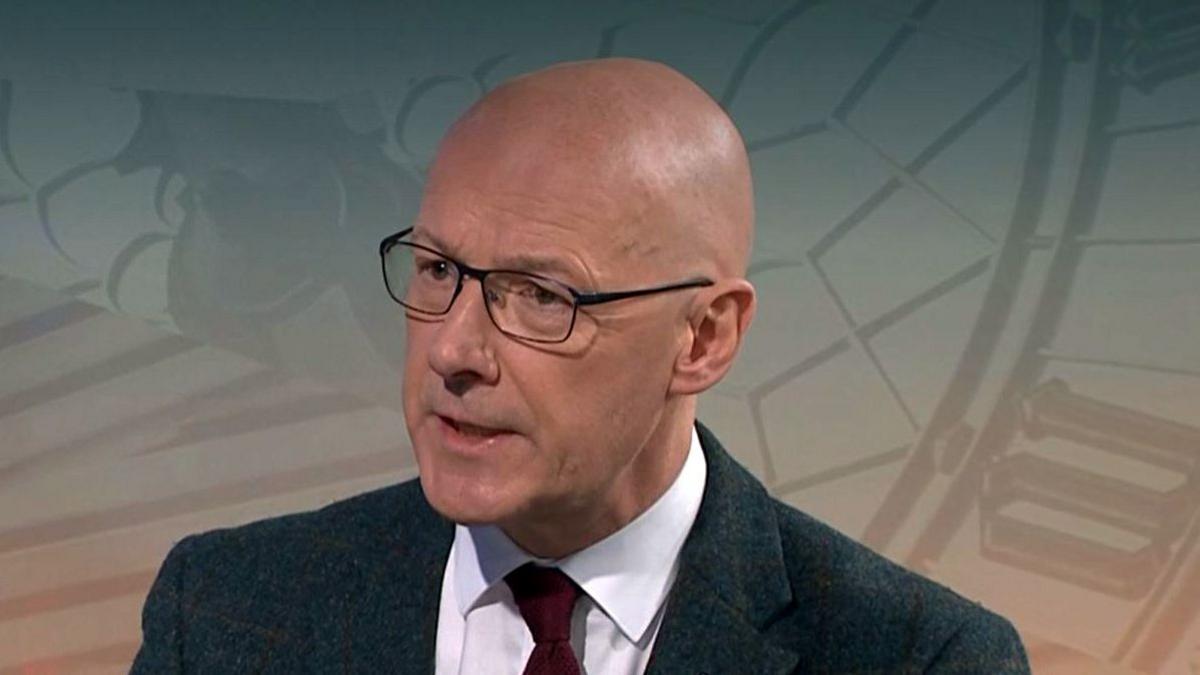UK government not considering Scottish visa to attract migrants

Several Scottish industries, including fruit growers, have struggled with staff shortages in recent years
- Published
The UK government is not considering a Scottish immigration visa system to help attract overseas workers north of the border.
The SNP are seeking a change to the law to allow Holyrood to establish such a scheme.
After the issue was raised at a Westminster debate on Tuesday, Scottish Labour MP John Grady said Sir Keir Starmer's administration was "absolutely determined" to attract "talented people" to Scotland.
The UK government source told the BBC: "We are not at all considering a Scottish visa system."
A previous proposal from the Scottish government for a pilot scheme which would exempt certain businesses from UK rules on hiring overseas workers was blocked by the former Conservative UK government.
It is believed a separate Scottish system could be set up based on different tax codes north of the border.
'Crying out for workers'
SNP MP Stephen Gethins will table a bill on Thursday seeking an amendment to the Scotland Act 1998 to enable the Scottish government to set up a Scottish visa.
He said it would allow Holyrood to "tackle the Brexit-born staff shortages that have inflicted pain and hardship upon our NHS and Scottish businesses".
The Arbroath and Broughty Ferry MP said the social care sector was "crying out for workers" and referenced fruit being left to rot in fields due to shortages of rural workers.
He added: "The SNP is absolutely clear that we need a Scottish visa to address our demographic challenges and the damage caused by Brexit - it's now up to Scottish Labour MPs to back us in those calls and put Scotland's interests first."

SNP MP Stephen Gethins is tabling a bill at Westminster that would allow Holyrood to set up a Scottish visa
Gethins raised the issue at a Westminster Hall debate on Tuesday.
Scottish Labour MP John Grady replied that Scottish and UK Labour were “absolutely in favour of bringing talented people into Scotland” and that it was a question of "how you do it".
He said he understood Home Secretary Yvette Cooper was "absolutely determined that that takes place".
The Glasgow East MP said the migration advisory committee - an independent public body that advises ministers - was looking at the issue "very carefully".
The Labour MP for Na h-Eileanan an Iar, Torcuil Crichton, appeared to back calls for a bespoke immigration approach for different parts of the UK.
He posted on X, external: "Depopulation is the biggest economic and social issue facing the Western Isles and rural Scotland. When it comes to immigration policy one size does not fit all.
"It shouldn’t be beyond us to devise ways to attract more people to work and settle here."
Experts say immigration is key to offsetting an ageing population and falling birth rate in Scotland.
The main driver of the country's population growth last year, which rose at a faster rate than at any time since the 1940s, was immigration.
However, deaths outnumbered births by the highest margin on record.
National Records of Scotland forecasts, external the population will start to fall in about a decade as the gap between births and deaths outweighs the number of immigrants.
'One immigration system'
Scottish Labour's general election manifesto, external pledged to reform the UK migration advisory committee and to ensure migration and skills policies “work for every part of the UK”, while ending “long-term reliance on overseas workers in some parts of the economy”.
In the days leading up to July's vote, Scottish Labour deputy leader Jackie Baillie told the Herald on Sunday, external her party would look at ways to "incentivise" migrants to the UK to settle in Scotland.
Days after the election, Scottish Labour leader Anas Sarwar was asked if he would push the prime minister for a distinct immigration system north of the border.
He told BBC Scotland's Sunday Show: “No. We have to have one UK border agency, of course we need one immigration system.”
Sarwar said the two governments could work together to find solutions to “distinct” immigration issues – such as filling labour shortages in some industries.
He also highlighted the Fresh Talent Scheme, introduced by Tony Blair’s Labour government in 2005.
It allowed international students at Scottish universities to continue working in Scotland for up to two years after they graduated, after which they could apply for other visas. The policy was scrapped by the UK government in 2011.
- Published30 June 2024

- Published28 June 2024
